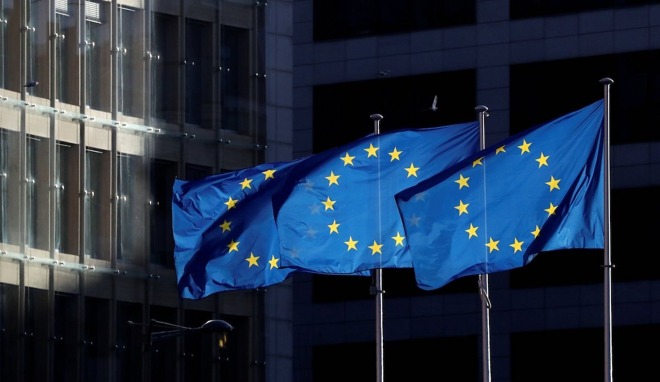Apple on EU 'hit list' of big tech companies that will face stricter rules
The European Union plans to impose new and stricter regulations on a "hit list" of 20 large internet companies -- including Google, Facebook, Amazon, and Apple.

Credit: European Commission
EU regulators, who are seeking new powers to police Big Tech in Europe, are currently drawing up that "hit list." The companies will be subject to more stringent rules in an effort to curb their market power.
The list of rules will be based on criteria such as the number of users a company has, or the market share of revenues, according to The Financial Times. It could also include technology companies deemed so powerful that rivals can't trade without using their platforms.
Companies that find themselves on the list may face new rules that could force them to be more transparent about the information they gather and regulations requiring them to share data with their competitors. It's likely that the list will skew toward companies in the U.S., which could cause tensions between Brussels and Washington.
Although EU regulators are still mulling the exact number of companies and precise criteria, the move to acquire new policing powers is part of a broader effort by Brussels to curb a company's market power without a full investigation, or without finding them guilty of breaking existing antitrust laws.
The other potential powers that the EU is exploring will go beyond fines, and could allow regulators to "move quickly to force the likes of Amazon and Apple to ensure they give access to competitors and that they share data with rivals."
In some circumstances, the EU could seek to break up big technology companies or force them to sell units if they are found to be exhibiting anticompetitive behavior.
The EU is also drafting new rules for an overhaul of internet regulations in Europe. Proposals for that so-called Digital Services Act, which could come in December, will seek to place more responsibility on internet platforms for policing illegal content on their platforms, as well as products being sold.

Credit: European Commission
EU regulators, who are seeking new powers to police Big Tech in Europe, are currently drawing up that "hit list." The companies will be subject to more stringent rules in an effort to curb their market power.
The list of rules will be based on criteria such as the number of users a company has, or the market share of revenues, according to The Financial Times. It could also include technology companies deemed so powerful that rivals can't trade without using their platforms.
Companies that find themselves on the list may face new rules that could force them to be more transparent about the information they gather and regulations requiring them to share data with their competitors. It's likely that the list will skew toward companies in the U.S., which could cause tensions between Brussels and Washington.
Although EU regulators are still mulling the exact number of companies and precise criteria, the move to acquire new policing powers is part of a broader effort by Brussels to curb a company's market power without a full investigation, or without finding them guilty of breaking existing antitrust laws.
The other potential powers that the EU is exploring will go beyond fines, and could allow regulators to "move quickly to force the likes of Amazon and Apple to ensure they give access to competitors and that they share data with rivals."
In some circumstances, the EU could seek to break up big technology companies or force them to sell units if they are found to be exhibiting anticompetitive behavior.
The EU is also drafting new rules for an overhaul of internet regulations in Europe. Proposals for that so-called Digital Services Act, which could come in December, will seek to place more responsibility on internet platforms for policing illegal content on their platforms, as well as products being sold.

Comments
"give access to competitors and that they share data with rivals."
Having implemented the General Data Protection Regulation ("GDPR") requirements into several companies there remains a broad misunderstanding of its far reaching impacts when it comes to data security, ownership, and retention, evidenced by the number of investigations taking place by the various Information Commissioners across the EU. The above statement only adds further evidence that the powers that be do not understand the implications of such proposed actions on their own GDPR legislation.
The EU should instead focus on fostering the growth of their own technology industry to provide a counterweight to the US and Chinese powerhouses. Often it's not the lack of talent within the EU, it's that the businesses are held back the plethora of regulations at both the EU and country level that must be complied with to operate. Contrary to the EU marketing hype there is really is no "single market" in many many areas - technology being one.
Or Apple could fight back by saying they won't sell their products in Europe anymore.
Or the Dems could get elected and break up Apple into smaller companies.
The deeper the pockets, the bigger the target.
“The problem with socialism is that you eventually run out of other people's money.”